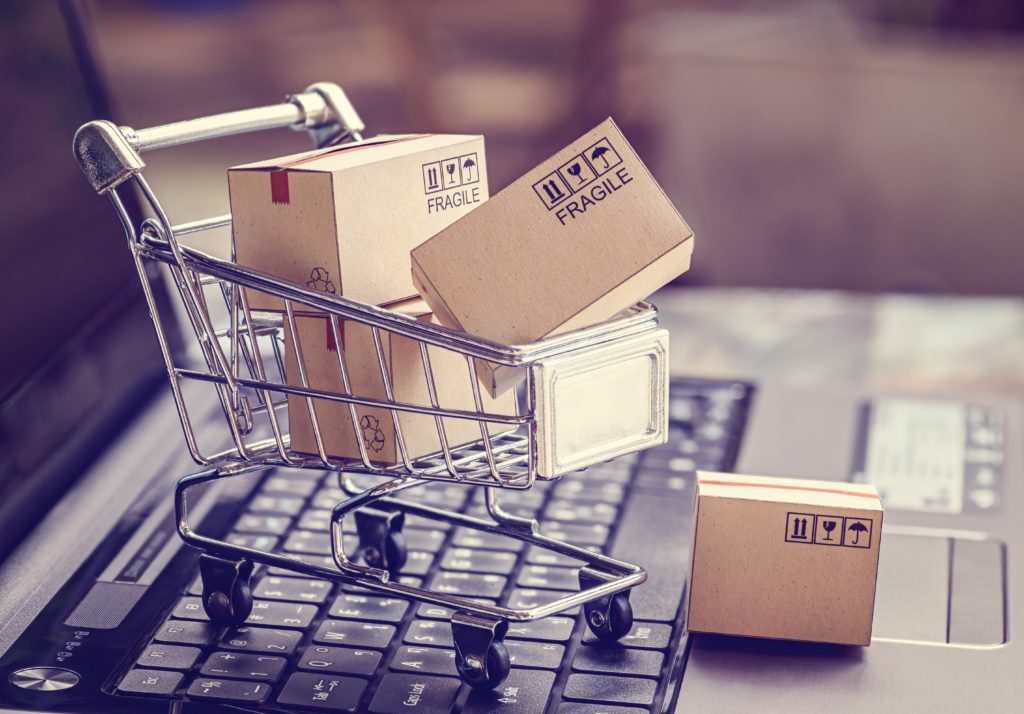
If some of us were not that used to online shopping before, the pandemic sure changed the way we felt about it. Whether you’re new to the whole online shopping concept or you’ve been a pioneer of e-commerce for years, you have to admit that online shopping is so ingrained in today’s society, that it’s hard to remember what the world was like before it.
No doubt about it, online shopping has its advantages. It’s easy, fast and you have access to a vast selection of products at the click of a button. However, it can also turn into your worst nightmare and leave you broke. How? By making these 7 most common and costly online shopping mistakes.
While we’re at it, see also 16 Seemingly Harmless Things You Need to Stop Doing on Your Computer

Paying with a debit card
Using debits cards is easy, fast and convenient, especially when compared to writing out checks. However, when it comes to online shopping, debit cards are not the best option. First of all, debit cards work similarly to cash; when you make a purchase, the money is withdrawn instantly.
Secondly, debit cards are not as safe as credit cards. If hackers get access to your debit card information and personal bank accounts, all the money in your checking account could be long gone before the card company starts investigating. Not to mention it’s much more complicated to get the money back and you might even need to close your account. Credit cards, on the other hand, offer a more robust protection against theft and hacking and are regulated by federal law.
For more useful tips on debit cards, see also 7 Times You Better Not Use a Debit Card for Payment.
Passing up cashback
Cashback means getting your money back. This works on certain websites that offer customers cash rewards for shopping at certain online retailers. So why would anyone pass up on free money?
Cashback sites can provide the following rewards to their members:
- Cash rebates if you purchase items via apps like Ibotta.
- Cash rebates if you shop via cash-back websites such as Quidco, Drop, TopCashback and Swagbucks Shop.
- Cashback by paying with a cash-back credit card., conditioned that your bill is fully paid every month and you have no interest charges.
Cash backs are great and all, however, don’t be tricked by a sensational cash reward into buying a product that’s way cheaper somewhere else.
Trusting a fake list price
Retailers have been using discount tactics for ages. If you’ve also been lured into buying a certain product just because you’ve seen a big red slash through the price list, don’t feel bad. Four out of five people (80 percent) claim they feel encouraged to buy a product if they see an attractive offer or discount.
But what does attractive even mean? Some products don’t even have list prices, so the discount could very well be made up. You may see an item is 50% off, but where did that original price come from? In other cases, the prices of items on sale are manipulated to make discounts look significant. To make sure you’re not falling for fake prices, compare products and prices on various websites before you choose the best one.
Using a public Wi-Fi
Have you ever made online purchases while sipping on your favorite Mochaccino at the local coffee shop? If your answer is yes, we’ve got a piece of advice for you: don’t ever do it again! That’s because sensitive information like your credit/debit card details sent via an insecure or public network can be easily accessed and used by hackers.
According to Symantec Corp., the company that developed the Norton anti-virus and other cybersecurity software, “shopping doesn’t seem like it involves sensitive data, but making purchases online requires personal information that could include bank account and retailer login credentials. Shopping isn’t something you want to do on an unsecured Wi-Fi network.” If you gotta do an online purchase, just wait until you get home and use a private and safer connection.

Not reading the return policy
Most online retailers have a ‘goodwill’ return policy for faulty or non-faulty returns (in the case of the latter, the returned item should be unused and in its original packaging). But don’t bet on it for all your online purchases. Some retailers have tighter return policies and don’t allow returns that easily. Sometimes, returning an item is so expensive that it’s just not worth the trouble.
Therefore, whenever you make an online purchase, make sure you read and understand the return policy, to avoid unpleasant situations. Find out the answer to the following questions:
- What are the website’s conditions for returns?
- How long a window do you have to return a product?
- Who pays for the return shipping? Can you return an item to a local store instead?
Speaking of local stores, here are 5 Simple Steps to Avoid Being Cheated at the Grocery Store.
Relying on reviews
No one is angrier than a costumer with a bad shopping experience. That person will tell you everything you need to know about the flaws of a product, customer care services of an online store, or lack thereof and everything in between. By the same token, someone may be praising a product and exaggerate about its qualities, manipulating you into buying it.
People have so many different opinions and sifting the good from the bad can be quite difficult. Fortunately, there are ways to wade through all of the reviews and spot the fake ones. You can either opt to rely on the three-star reviews, which give you both pros and cons; or you can use websites such as Fakespot and ReviewMeta which analyze and verify reviews based on certain algorithms.
Also, look out for these 9 Biggest Online Scams You Might Fall Victim To!

Ordering from sketchy websites
You might find the same product on various websites, but not all websites are created equal, that’s for sure. Some are just there to take your money without delivering any product in return. Many people get lured in by rock-bottom prices and end up paying more than they’ve bargained for.
For one, try to make all your online purchases from trusted sellers and resellers that you’ve either used before or heard about from people you know. If you come across a new website, read store reviews and verify the retailer’s online reputation. No reviews or ratings is not a good sign. Another thing you should pay attention to is the website’s URL address. A secure connection should change from “http” to “https” when you are close to finishing your purchase. You can also verify a website’s reliability on websites such as ResellerRatings.
























